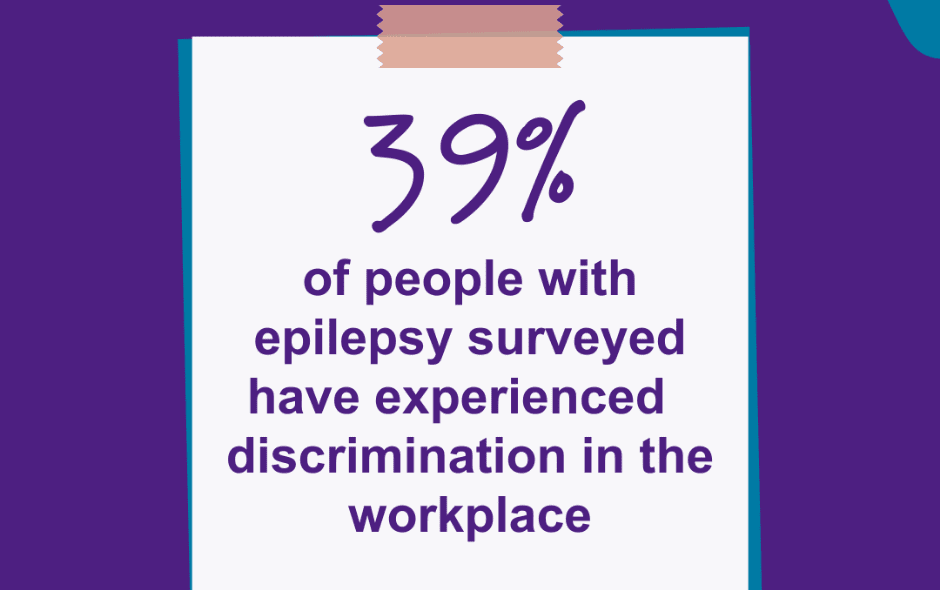As part of our Employment Campaign, our Policy and Campaigns Officer, Anna Telfer, explores the rights of people with epilepsy in the workplace.
In a recent survey conducted by Epilepsy Scotland, only half of respondents said they had reasonable adjustments in place to support them in their workplaces.
Some commented that they did not know what their rights were. This may mean that half of the people reading this might find themselves asking, what are reasonable adjustments, or what are my rights to request reasonable adjustments?
It is important people with epilepsy, people who work with people with epilepsy, and employers know the rights of the epilepsy community.
Let’s start with the Equality Act
The Equality Act 2010 is legislation that protects people from discrimination in the workplace and in wider society.
Epilepsy meets the definition of a disability under the Equality Act. This means people with epilepsy have the right not to be discriminated against because of their condition.
The Equality Act does not allow a blanket ban for people with epilepsy on any job apart from joining the Armed Forces.
Some careers have their own strict criteria based on health and safety, such as firefighters, pilots, train drivers, or doctors, however, the Equality Act still applies to them.
These professions will not be allowed to reject a job application from someone with epilepsy from the outset.
If a person with epilepsy is the best candidate for the job, the employer will need to carefully assess any risks based on that person’s seizures. If they identify a risk, they will need to make ‘reasonable adjustments to the job if possible.
What are Reasonable Adjustments?
Reasonable adjustments are changes you can ask your employer to consider making to help you carry out your job safely.
The Equality Act gives you the right to ask for reasonable adjustments if you feel you are being placed at a ‘substantial’ disadvantage because of a disability.
A reasonable adjustment can be temporary, for example until medication begins to control seizures in someone newly diagnosed with epilepsy or they can be long-term.
What is reasonable for one employer may not be considered reasonable for another. It will depend upon factors like the size of the organisation and the cost associated with putting the adjustments in place.
Some examples of reasonable adjustments for people with epilepsy could include setting a fixed shift pattern for people who find their seizures are triggered by tiredness.
Reasonable adjustment survey respondents
When asked about reasonable adjustments in our recent survey, many respondents commented on the importance of flexible hours as a means of supporting them in their roles.
Common issues like tiredness and stress being potential seizure triggers and transport limitations for those unable to drive due to seizures can be eased with the introduction of flexible working hours.
“My employer is very flexible though and for example if I need time to start later due to not enough sleep which can affect my epilepsy then that is never a problem” – Survey respondent
Another reasonable adjustment for people with epilepsy is the provision of a quiet space within the workplace where a person can rest after a seizure.
“Following my recent diagnosis my employer has purchased a sofa for my office in the event that I should have a seizure at work. This has happened and has been better than lying on the floor for a long period of time afterwards!” – Survey respondent
Everyone’s epilepsy is different. Adjustments which may support some people may not be suitable for others.
These adjustments can be very specific to an individual and should always be discussed between the employer and employee to find out what specific support they may need.
You can learn more about the Equality Act in our publication section which summarises some of your key rights under the act.
For more information on rights and responsibilities at work under the Equality Act, check out our Occupational Health Guide.
#EpilepsyAndEmployment




